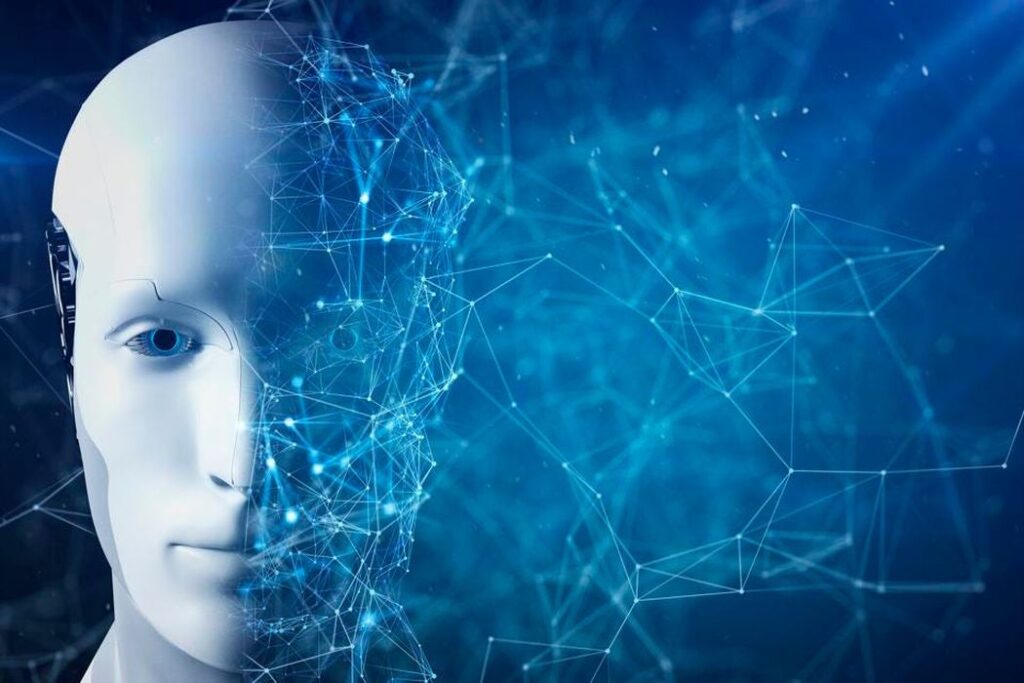It’s no secret that AI has significantly impacted the world as a whole. For some people, they might not even realize exactly how much of their lives are assisted by AI. For others, they may knowingly use AI to help with daily tasks. In this article, we take a look at 5 ways that AI has improved user experience within the entertainment sector, to see just how far this new technology has come!
1. Chatbots
There’s a good chance that most people reading this article have encountered a chatbot before, at least in some capacity. They appear on most websites that have a live chat option, including some of the biggest entertainment companies in the world, such as Netflix.
Chatbots are programmed to understand the needs of users, based on various keywords. For example, if a user inputs a message that includes the word ‘phone’ or ‘number’, it is likely that the bot will respond with the dedicated phone line for that company.
While some of these AI bots have a deeper understanding than others, the goal is the same. They aim to direct users to the right area of the website, without the need to speak with a representative directly. Not only does this keep agents more available, but it can also reduce the waiting times that other users are experiencing.
2. Smarter Suggestions

AI can help to provide smarter suggestions to users, based on what they’ve looked at previously. This can work universally or on a single website. Based on the previous search and browsing history of a user, an algorithm can suggest what they will likely want to see
Perhaps a perfect example of this can be witnessed first-hand when scrolling through a social media website, such as Facebook or Instagram. Often, ads displayed will be based on previous shopping or browsing preferences.
While sometimes this may seem a bit strange, this is done to ensure that only relevant posts appear on a user’s feed’. The same will happen with content on other social media platforms, such as YouTube, another leading company in the entertainment sector.
The YouTube algorithm is complex in theory, but to simplify it, videos that are similar to those watched previously will likely be recommended. YouTube uses AI to categorize these videos, based on a handful of different criteria before displaying them to users.
So, how does this benefit users? Well, it means that people no longer have to spend minutes or potentially even hours looking for something entertaining. Other entertainment platforms, like the aforementioned Netflix, have also incorporated this feature in some capacity with their ‘Recommended for You’ section’.
3. Data Validation

Next up is data validation, which AI can assist with greatly. When users are signing up for an account, or checking out at any online website, all data can be checked before it is submitted. This can include emails, addresses, phone numbers, and more!
This measure can stop users from accidentally entering incorrect information, which may cause them to start the entire form again. In some cases, there will also be the option for ‘autofill’, meaning that all information does not have to be typed manually by website visitors.
In addition, it can also help to prevent ‘lost leads’, which is again caused by information being entered incorrectly. Although some users may want a product or service, a wrongly spelled email address can cause them to receive no further information. Of course, this is bad for both users and website owners.
However, there is one minor drawback to this. AI can only detect whether the email address, phone number, or physical address is a real one. It cannot match that piece of information to the person entering it. In short, people can still enter fake email addresses and more, provided that they haven’t already been used in the past.
4. Automated Text to Speech

Most people reading this article will be familiar with text-to-speech. However, AI has allowed the entire process to be automated. This has saved website owners countless hours in the past, meaning they no longer have to adapt text so that it can correctly be pronounced by machines. Over the years, AI has refined text-to-speech, ensuring that virtually any word in the English language can be ‘spoken’ with ease.
This helps people that cannot read text-based content themselves or individuals that prefer to listen to articles while performing daily tasks. By offering this additional method of consuming content, users are free to choose their preferred medium.
While this has been utilized by a lot of websites in the entertainment sector, other areas, such as technology, still haven’t implemented this useful feature. A blog post published by PartyCasino details 10 different technology companies that haven’t evolved to the current climate. For some of these businesses, none of the AI tools on this list have been used at all.
5. Decision Making

Finally, artificial intelligence has greatly aided the entertainment industry with decision-making. This has been made possible through the collection and analysis of different data, whether this is through surveys, personalization features, or other methods.
This information can be based on hundreds, thousands, or even millions of different unique details, all of which can be quickly processed. Information can also be rationalized based on criteria that the operator selects.
Perhaps the most crucial aspect of using artificial intelligence, for this reason, is that no preference will impact the results. No personal bias is used when making decisions. The only thing each outcome is based on is the numbers and statistics that have been input by others.
Conclusion

That concludes this article on how AI has improved the user experience within the entertainment sector. While this applies mainly to websites, it’s clear to see how the same technology can be applied to other use cases. Artificial intelligence is becoming more and more accepted around the world, with the entertainment sector not being the first, or last, industry to follow suit!

